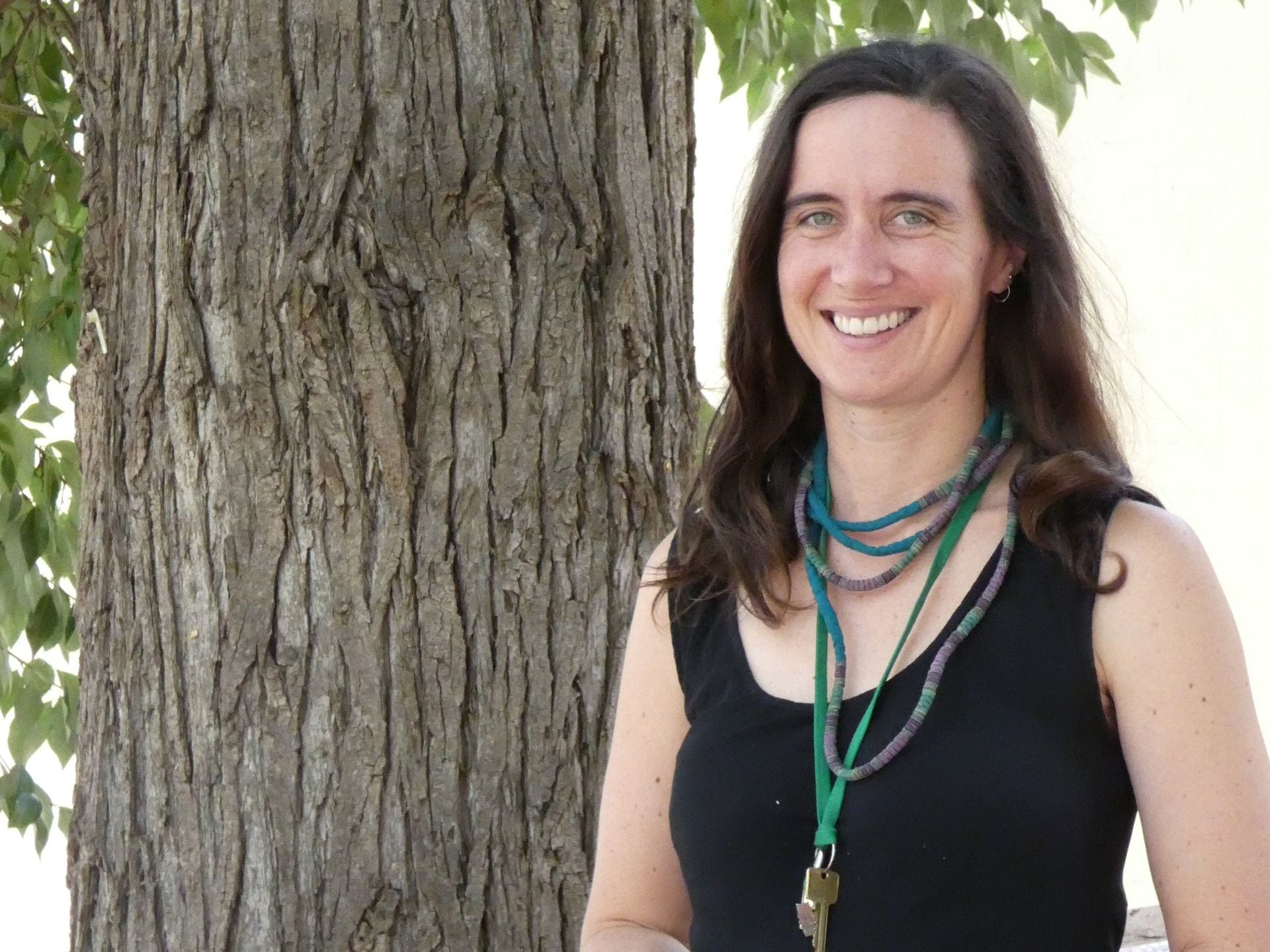There are individual disciplines, and then there are passions and interests that blur and merge everything together.
With a passion for the environment and making real change, it’s not unusual for UNE English lecturer Dr Jennifer Hamilton to collaborate closely with farmers, doctors and visual artists, to name a few, in her research. But a brush with an iconic Icelandic popstar is a new one.
Her latest endeavour – a book chapter co-authored with Astrida Neimanis in the book, Connectedness: An Incomplete Encyclopedia of the Anthropocene, newly-launched in Denmark – sees her rub shoulders with an eclectic mix of experts – from environmental spokesperson Greta Thunberg to Icelandic musician Bjork.
While from many different professions, the book’s diverse contributors all write along the theme of how nature connects humanity. Other contributors include iconic environmentalist Vandana Shiva and Bill McKibben, and famous philosophers like Donna Haraway and Bruno Latour. But Jennifer is particularly thrilled and surprised to be published with Bjork.
“When I was dancing and singing along to Bjork’s hit ‘It’s Oh So Quiet’ in high school, I never could have even dreamed I would one day be published alongside her. It’s definitely an accidental career highlight!” she says.
Jennifer describes her co-authored chapter in the book as a “field guide with a twist.”
“We made this field guide after travelling to Sweden to think about how the concept ‘weathering’ might be able to inform outdoor education. The exercises we offer challenge the notion of the field guide where the expert human goes into the field and uses knowledge to name and classify the environment. This field guide invites people to go on a journey of self-exploration in relation to the weather and climate.”
‘Weathering’ is the exploration of the everyday, wide-ranging, personally experienced impacts and connections with big picture climate events, like climate change.
“We all experience ‘weathering’ in different ways,” Jennifer says.
“But as the drought, bushfires and coronavirus have unequivocally shown, humans are 100% part of the environment – as opposed to separate from or superior to it – and connected to each other.”
And, with her research ideas exploding from the conceptual into the practical and achievable, she has found like-minded people from all walks of life to share her enthusiasm and contribute their thoughts and experiences to the concept of ‘weathering’.
“What’s been amazing to experience is how ideas can travel from being abstract ideas in feminist theory journals from a bunch of academics, to concepts that are in books read by people of all professions.
“There is no way we could have anticipated all the different industrial applications of the concept of ‘weathering’ at the outset, nor could we have articulated who was a relevant industry partner. But, with research funding, we’ve had the time and space to be a bit playful and take a few risks and see what fantastic and unexpected things might eventuate.
“Now the work has been picked up by educators, architects, the state government, community organisations and health care professionals, to name a few,” she says.
Jennifer regularly encourages anyone with an interest in climate issues to get involved in conversations and community workshops, particularly through her funded Community Weathering Station (CoWs) project – which will this year launch a new Armidale Climate and Health Project, in collaboration with Armajun Aboriginal Health Service and Sustainable Living Armidale.
Meanwhile, Connectedness: An Incomplete Encyclopedia of the Anthropocene launched in Denmark on 20 August and is due to be published in October.
For Jennifer, the book – did she mention she was published alongside Bjork? – is the epitome of the value and reward of the cross-fertilisation of ideas.
“We’re taught to fight tooth and nail with each other to make our individual dreams a reality. But I think this book is a great example that, if you focus on the ideas and practices that are central to your work, what is wonderful is the surprise you get bumping into different people along the way.”
- Find out more about the project or buy the book here.
- The Armidale Climate and Health Project will launch at the New England Regional Art Museum (NERAM) on 26 September.



Recent Comments